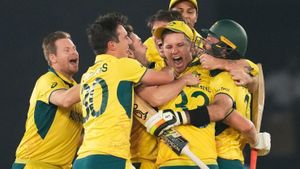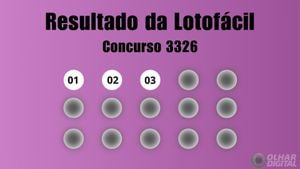Kamil Stoch's exclusion from the Polish ski jumping team for the upcoming World Championships has ignited heated discussions among enthusiasts and experts alike. Scheduled to take place from February 26 to March 9, 2025, in Trondheim, Norway, the absence of one of Poland's most celebrated ski jumpers has raised eyebrows and sparked controversy.
Stoch’s performance this season, coupled with his ranking lower than his teammates, led coach Thomas Thurnbichler to make the difficult decision not to include him. "Kamil Stoch simply lost the competition for the spot on the team," Thurnbichler noted, acknowledging what many saw as the harsh reality of competitive sports.
Jakub Kot, former ski jumper turned Eurosport expert, expressed his thoughts on the matter, emphasizing the uniqueness of Stoch's situation. "If this were any other jumper, there wouldn't be such discussion. But he is an icon and has his followers," Kot stated, highlighting the emotional connection fans have with Stoch.
Over the past two years, Stoch struggled to maintain his form, failing to secure top ten finishes, which played heavily on his exclusion. During the current World Cup season, he has not once made it to the top ten, and his last finish within this range was nearly two years ago. Despite showing some improvement, as evidenced by his recent performances, Stoch was unable to convince Thurnbichler or the coaching staff of his readiness for the World Championships.
Thurnbichler’s choices have drawn mixed reactions. While some support the decision for its pragmatism, others feel it lacks consideration for Stoch's legendary status and past accomplishments. "It's unfortunate our staff didn't decide to take six jumpers, which would have eliminated the entire debate," Kot pointed out, advocating for clearer metrics directly tied to performance.
Controversially, the coach was criticized for not providing earlier clarity around the selection criteria for the team, leaving room for speculation and debate among fans and athletes alike. Kot suggested this ambiguity opened the door for interpretation. "Imagine if Stoch had finished within the top ten; Thurnbichler would have had no choice but to select him. He skied consistently well. It's not just about metrics but also about the narrative and stature of the athletes involved," he argued.
The pressure of championship events is unlike any training session. Trained professionals respond differently when they know they are competing under severe scrutiny and for stakes at such high levels. Stoch's previous performances instigated both hope and doubt, but his recent consistency did not measure up to those of teammates who showed stronger results.
Many are left contemplating what this means moving forward for Stoch and the Polish ski jumping community. The upcoming World Championships may very well serve as both a platform for other competitors to shine and as potential closure for Stoch’s inconclusive season. For now, he remains focused, albeit absent from contention.
To summarize, the decision not to select Kamil Stoch for the World Championships reflects not only the realities of sports performance metrics but also the emotional upheaval such exclusions cause for athletes and their followers. What's at stake is not just the results but the spirit of competition itself, and how legacies are built and sometimes shattered.



